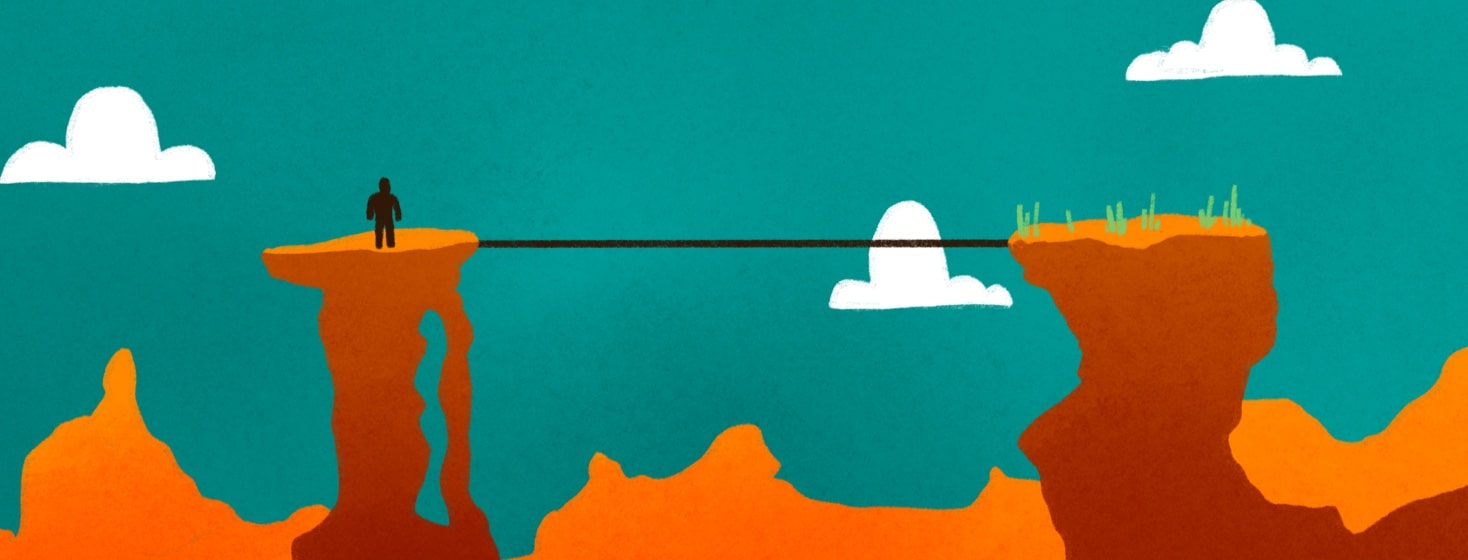When It Comes to Treatment, When Do You Leave Well Enough Alone?
Finding an effective medication for any chronic disease can be a challenge for both patient and doctor. Before I got sick myself, it seemed simple enough: Just match up the illness with the appropriate medication. What’s hard about that?
Now I know that the process entails a careful, and continually evolving, risk-versus-benefit analysis tailored to each patient—with the goal of getting them the most benefit with the least harm. Every medication and medical intervention comes with potential side effects. While a drug may improve a symptom or a set of symptoms, oftentimes it does so at the cost of other parts of the body.
Risk vs. reward
For autoimmune or auto-inflammatory disease, such as ankylosing spondylitis, the biologic medications available don’t just suppress the autoimmune attack. They also suppress immune defenses against infection. When you block a particular inflammatory cell to slow disease progression, you also block that cell's positive and protective immune functions. It sucks, but you can’t selectively suppress the immune system.
So, when a medication is working to some degree—and has given you no side effects thus far (which feels like an utter miracle)—you’re left with a tough decision. Do you leave well enough alone and accept your quality of life, even if it isn’t all you’d hoped for? Or do you move on to another drug in the hopes of remission, knowing the next drug could be a total flop, or worse—give you a dangerous side effect?
Decisions, decisions
I am at this exact fork in the road now. After several years of medical thriller-style bad luck with ankylosing spondylitis medications—-I’m talking ones that gave me horrible and rare recurring infections, weird and alarming side effects like tingling and numbness in my limbs, and ones that provided absolutely no symptom improvement whatsoever—-I have finally landed on a drug that noticeably helps.
My daily pain level has reduced from an 8 to 9 on the pain scale to about a 4 to 5. The quality of the pain is no longer the excruciating, sharp, stabbing kind that I had sadly become accustomed to and that made me sob for relief. My spondies know what I mean; it feels like a mix between rolling around on broken glass, recently having fallen down a few flights of stairs, and fiery hot pokers sticking you in the spine all day long.
Thanks to Cimzia, which I started about 6 months ago, my pain is now more like a dull, widespread ache. My stiffness has improved too; I can get myself moving within an hour or two of waking up, whereas it used to take me half the day to get going. I have begun to be able to do things I haven’t dreamed of doing in years, such as stacking errands on weekends (I used to be able to run one, maximum), driving long distances again, and hosting holiday dinners (safely, of course, as we are still in a pandemic!). I feel the desire and the ability to participate in life again, and it feels incredible.
Still not in remission
Seems like a pretty dramatic improvement, right? It is. But even with all that, I’m not in remission. Pain is part of my everyday life. There are mornings I wake up and realize that I absolutely cannot do what I planned to do that day. And if I spend the day out and about, I still need at least one or two slower paced days at home to recover.
My body still won’t allow me to do half of the things I want to do. It still feels creaky, achy, and old. I still cannot do most exercise without hurting myself or landing myself in bed for days. I still have to carefully budget my energy so that I can carry out activities of daily living.
Letting "good enough" be enough
Somehow, though, I feel content most days. If you'd have asked me when I was diagnosed 7 years ago if I could be happy with my current quality of life, I'd have said absolutely not. I would have focused on what I'm not able to do and what I've lost.
But back then, I had no idea what the road ahead of me entailed. I had no idea how many doctor's appointments, scans, and medical bills were in my future. I didn't know how much luck it would take to find a medication that gives me any improvement at all, let alone with no side effects. I didn't know that I would have to earn every ounce of health I have through the hard work I put into managing it. And I didn't know that what I'd want most is to feel some degree of freedom in my body each day, spend time with the people I love, and do work that feels meaningful to me—even if I can't do everything my peers can.
And, for now, that feels like enough.

Join the conversation